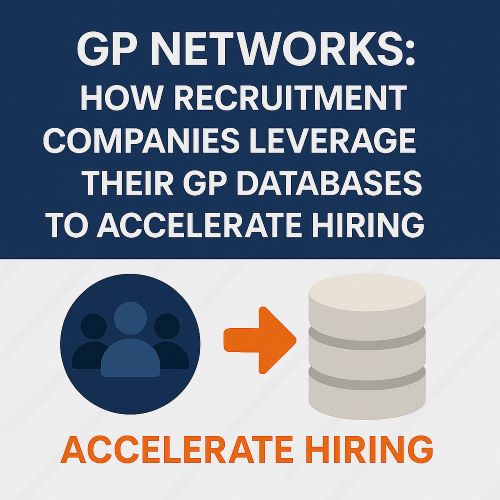When recruiting General Practitioners in Australia, finding the right candidate is only half the job. Ensuring that every doctor meets professional, ethical and legal standards is what truly protects your clinic in the long run.
Rigorous screening and compliance checks are not about bureaucracy. They are about safeguarding patients, maintaining professional integrity and preserving your clinic’s reputation.
In Reddit discussions, candidates often express frustration about “invasive health questionnaires” or unclear compliance processes. Yet, behind these procedures are essential checks that protect both clinics and doctors from serious risks.
Why Screening and Compliance Matter in GP Recruitment
Recruitment firms and clinics carry a shared responsibility to ensure every doctor they hire is safe, qualified and compliant.
From verifying AHPRA registration to conducting police and reference checks, these measures ensure your clinic remains legally protected while fostering patient trust.
The Risks of Skipping Compliance
- Legal exposure: Employing an unlicensed or improperly vetted doctor can result in fines, insurance disputes or AHPRA action.
- Reputational damage: One compliance failure can erode years of community trust.
- Clinical safety: Thorough background checks help prevent negligent or unethical practice.
Understanding the GP Screening Process
A standard compliance process for GP recruitment in Australia involves several critical steps.
1. AHPRA Registration and Licence Verification
Every GP must hold valid registration with the Australian Health Practitioner Regulation Agency. Recruiters verify this status directly with AHPRA to ensure there are no suspensions, conditions or lapsed licences.
2. Identity and Work Rights Checks
Doctors are required to provide proof of identity, residency and visa status. Clinics should confirm that candidates have full or limited work rights under Australian immigration law.
3. Reference and Background Checks
Professional references from previous employers or supervisors help confirm clinical performance and communication style. These insights are invaluable for cultural and team fit.
4. Police and Working with Children Clearances
Background checks are mandatory for all healthcare professionals, particularly those working with vulnerable populations.
5. Health and Immunisation Verification
While candidates sometimes feel these forms are excessive, they are necessary to comply with public health regulations and protect both staff and patients.
Addressing Candidate Concerns
On Reddit, several candidates describe compliance processes as “repetitive,” “confusing,” or “overly personal.” These perceptions usually arise from poor communication, not from the process itself.
How Clinics Can Respond
- Be transparent: Clearly explain why each form or clearance is required.
- Keep it relevant: Ask only for information necessary for the role.
- Respect privacy: Reassure candidates that their data is stored securely and used only for compliance purposes.
A transparent approach transforms screening from a burden into a mark of professionalism.
How Recruitment Companies Strengthen Compliance
Specialist GP recruitment firms like Practice Boost’s GP Recruitment Company streamline this process by handling checks on behalf of clinics. Their structured systems ensure that every candidate presented is already verified and compliant.
This saves clinics time, reduces risk and accelerates onboarding.
Recruiters typically manage:
- Verification of AHPRA registration and qualifications
- Work rights and visa validation
- Reference and background checks
- Document management and audit preparation
By the time a candidate reaches interview stage, clinics can be confident that they are both qualified and compliant.
How Rigorous Checks Improve Recruitment Outcomes
1. Improved Retention
Doctors who pass structured screening processes are more likely to fit the clinic’s values and work style, leading to higher retention rates.
2. Reduced Administrative Stress
Clinics avoid delays, duplicate paperwork and last-minute surprises when compliance is completed early.
3. Enhanced Patient Confidence
When patients know your doctors are properly credentialed, they trust your clinic more. This increases satisfaction and strengthens your reputation.
4. Protection Against Regulatory Issues
With AHPRA and Medicare maintaining strict oversight, non-compliance can trigger investigations or loss of eligibility. Rigorous checks prevent such risks before they start.
Real-World Example
A Sydney medical centre faced a major setback when a locum GP’s expired AHPRA registration went unnoticed. The clinic’s insurance declined coverage for several claims, causing significant losses.
After partnering with Practice Boost, the clinic implemented a centralised compliance system and now verifies all GP credentials quarterly. Since then, recruitment has become faster, safer and fully traceable.
Best Practices for Clinics
- Create a compliance checklist: Include registration, insurance, vaccination, visa and police clearance requirements.
- Use digital storage: Securely track expiry dates and reminders through a CRM or HR software.
- Communicate early: Tell candidates what is required upfront to prevent delays.
- Partner with experts: Firms like Practice Boost can manage documentation, credentialing and audit preparation end to end.
Common Questions Clinics Ask About GP Screening and Compliance
Is screening legally required for all GPs?
Yes. Clinics are legally responsible for ensuring their doctors are qualified, insured and registered with AHPRA.
Can recruitment agencies handle compliance on our behalf?
Yes. Agencies specialising in GP recruitment maintain compliance systems that streamline verification and record keeping.
How often should compliance be reviewed?
Ideally, every six to twelve months to ensure ongoing regulatory alignment.
Do these checks delay hiring?
When structured properly, they actually shorten hiring time by preventing issues that cause delays later.
Protecting Clinics and Patients Through Compliance
In the healthcare sector, compliance is not optional. It is essential. Clinics that implement rigorous screening and verification processes protect themselves, their patients and their professional reputation.
By partnering with recruitment experts like Practice Boost, clinics can ensure every GP hire meets the highest clinical and ethical standards.
%20(1).avif)
.avif)

.svg)
.svg)


.svg)

